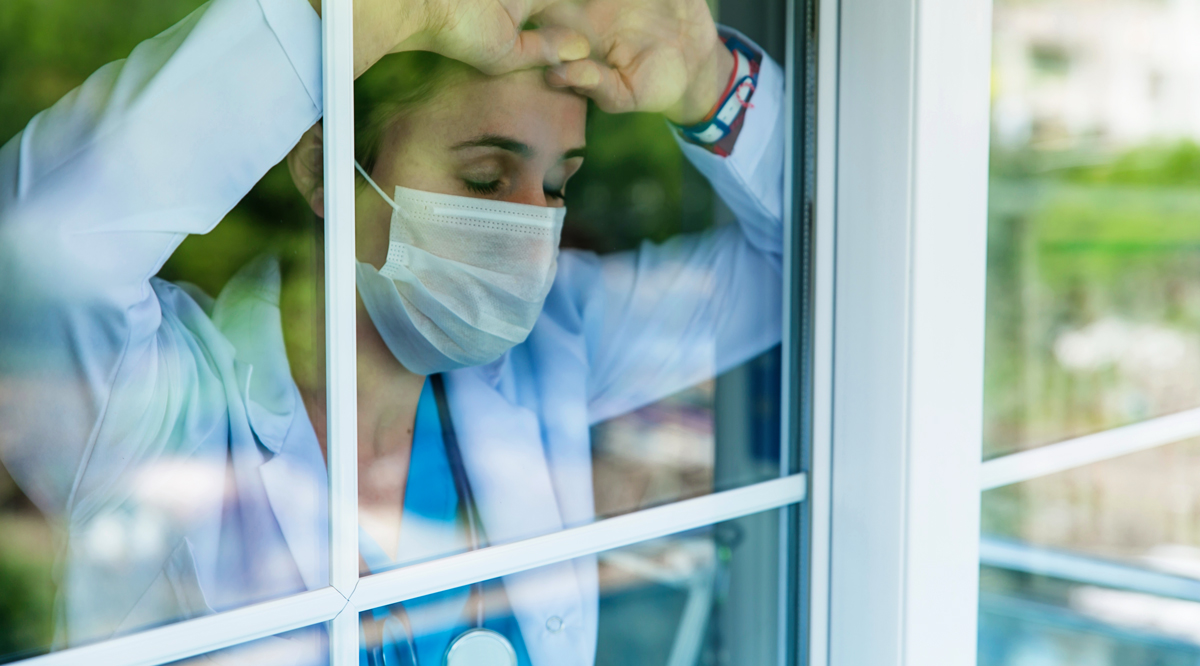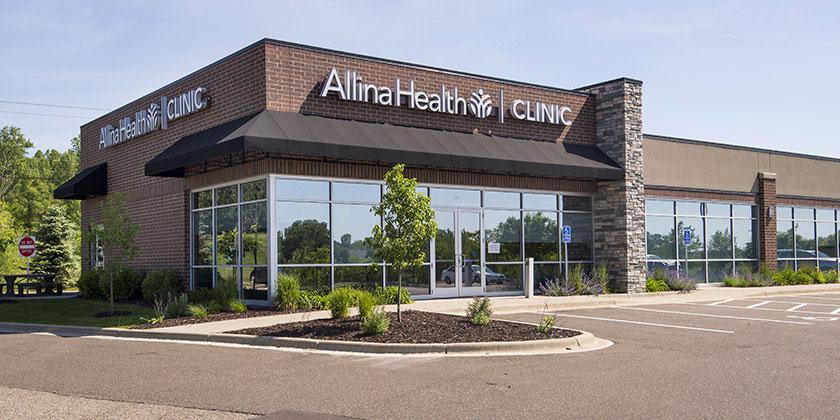Docs on occasion deal with sufferers in excruciating ache, rush to heal our bodies shredded by way of gunshots, and ship essentially the most heartbreaking information to sufferers’ relations. Lots of them paintings lengthy hours underneath intense drive, striving to treatment sicknesses and save lives. However docs are human. They undergo melancholy, anxiousness, burnout — the entire similar intellectual fitness problems that folks face. Actually, they on occasion undergo extra.
One meta-analysis estimated the melancholy charge amongst clinical citizens at 29% — whilst the speed amongst nonphysicians used to be 8%. Physicians die by way of suicide at two times the speed of the overall inhabitants. And in October 2020, 87% of emergency physicians reported feeling extra stressed out because of COVID-19, however 45% stated they didn’t really feel at ease searching for remedy if wanted.
A lot of issues discourage struggling physicians from getting assist: licensing worries, fears of misplaced paintings alternatives, and a pro tradition that means that it’s unacceptable to seem “vulnerable.”
However professionals consider searching for care if truth be told makes docs higher suppliers. What’s extra, speaking overtly about intellectual fitness struggles can cut back disgrace and advertise help-seeking.
“Stigma can price lives, and sharing our non-public struggles can assist save them,” says Darrell Kirch, MD, president emeritus of the AAMC and co-chair of the Nationwide Academy of Drugs (NAM) Motion Collaborative on Clinician Neatly-Being and Resilience.
AAMCNews spoke with 4 physicians about their non-public intellectual fitness trips. Those physicians shared tales of melancholy, sexual abuse, substance use, and suicidal ideas. However in addition they described therapeutic, hope, energy, and a decision to serve sufferers with the best level of compassion and the best quality care.
Formative years trauma, many years of silence
Contents
When Darrell Kirch, MD, used to be 20, he witnessed an excruciating scene.
Kirch, now 73, used to be running on a surveying team in Colorado’s Rocky Mountains when a 40-passenger aircraft abruptly crashed into the mountain above. A survivor got here stumbling in the course of the bushes, his garments and pores and skin badly charred, and the surveyors temporarily shaped a makeshift sling to hold him to protection. Then they ran again to the scene to assist others— however to little avail. In the end, 31 passengers perished.
Kirch, who later turned into a psychiatrist and a pace-setter in instructional medication — he served as president and CEO of the AAMC — says that these days a mental debriefing would practice such an tournament. “Again then, this came about on a Friday, and I simply went again to paintings on Monday.”
Sadly, that used to be no longer the primary trauma Kirch suffered in his early years. As an excessively younger kid, he additionally skilled sexual abuse by the hands of a relied on grownup.
This revelation particularly is one who Kirch does no longer make simply. “It’s very uncomfortable,” he says. “However I am hoping it may well assist other people.”
The abuse in addition to different components — together with genetics, he believes — resulted in quite a few intellectual fitness problems, and Kirch coped in large part by way of specializing in reaching instructional luck. Made up our minds to assist others, Kirch used to be overjoyed when he used to be authorized to the College of Colorado Faculty of Drugs in 1973.
However a significant setback loomed.
Whilst running with cadavers in anatomy category — our bodies harking back to the crash sufferers — Kirch suffered excessive anxiousness, together with intense middle palpitations and hyperventilation. “I felt like I’d die,” he recollects.
Kirch went to a clinical college dean to mention he had to drop out. As a substitute, the dean inspired him to hunt psychiatric care. Kirch agreed. “I used to be determined,” he says.
“I started to really feel like I needed to be extra approaching. I felt that revealing non-public tales used to be the one antidote to stigma.”
Remedy helped Kirch move directly to a a hit profession. Amongst his a large number of achievements are serving as dean at two clinical faculties and co-chairing the NAM’s Motion Collaborative on Clinician Neatly-Being and Resilience.
“Drugs and trauma-focused psychotherapy assist me to nowadays,” he says.
For just about his whole profession, Kirch stored silent about his struggles. As he used to be co-leading the NAM paintings, even though, “I started to really feel like I needed to be extra approaching,” he says. “I felt that revealing non-public tales used to be the one antidote to stigma.”
Actually, Kirch regrets no longer stepping ahead faster. “I used to be in a management place, however I didn’t display management in this entrance,” he says, recalling quite a few learner suicides all over his days as a dean. “I nonetheless take into accounts that.”
Nonetheless, Kirch is deeply thankful for the chance to have an affect now.
“Folks ceaselessly inform me … that to have anyone like me be so open used to be vastly useful,” he says. “It made them really feel inspired to hunt assist and press ahead of their careers, and that’s particularly pleasurable to listen to from newbies who’ve such a lot in their careers forward of them.”
A surgeon steps ahead
“That is terrifying.” The ones had been a number of the first phrases Carrie Cunningham, MD, uttered whilst status sooner than 2,000 of her friends in February 2023.
Cunningham used to be presenting her concluding remarks as president of the Affiliation for Instructional Surgical operation (AAS) — and she or he used to be revealing many years of melancholy and anxiousness in addition to a contemporary analysis of a substance use dysfunction.
“I do know that giving this cope with these days will alternate my profession trail,” stated the Harvard Faculty of Drugs affiliate professor. “There will likely be individuals who see me as vulnerable, emotional, and broken.”
However, she added via her tears, “If I will save you one among you … from loss of life by way of suicide or struggling by myself, it is going to be price it.”
Cunningham, 50, had lengthy been a powerhouse. As a young person, she used to be a world-class tennis professional and competed at Wimbledon 5 occasions.
However at 17, Cunningham started to revel in a melancholy that might go back through the years — all over the trials of residency, as an example. She plowed via anyway. “I’m one of the most hardest other people I do know, so I figured I may just maintain this.”
When an expensive good friend and fellow surgical resident died by way of suicide in 2012, even though, Cunningham knew she wanted assist. After being prescribed antidepressants, “It used to be like an enormous weight lifted.”
The drugs persisted to assist till Cunningham’s marriage resulted in 2021 — she’d been “Dr. Lubitz” for many years however reverted to her maiden identify after the divorce — and she or he started a year-long spiral into melancholy.
“I do know that … there will likely be individuals who see me as vulnerable, emotional, and broken.”
Cunningham started consuming extra, and once they witnessed her visibly inebriated at a colleague’s celebration, buddies in any case determined to manner her boss.
“I used to be furious,” says Cunningham.
However that intervention started her therapeutic procedure. With the assistance of her division management at Mass Normal Health facility, Cunningham quickly attached together with her state’s doctor fitness program (PHP), the group that gives confidential evaluation and assets for suppliers’ intellectual fitness remedy.
Then, after in-depth psychiatric trying out, she learn the hardest sentence she had ever noticed: “The evaluation group is of the opinion that Dr. Lubitz is these days no longer have compatibility to follow medication.”
Cunningham voluntarily agreed to go through 3 months of in depth remedy. She nonetheless takes a breathalyzer check thrice day-to-day, and she or he attends a number of remedy and support-group classes each and every week.
In quest of assist didn’t have an effect on her clinical license, and she or he returned to follow after the PHP cleared her.
“I’m the most efficient I’ve ever been in my existence, and I’m thankful to my buddies for serving to me get remedy,” she says.
Alongside the best way Cunningham has realized many courses, together with one among her favorites, the perception that “self-care is a certified duty.”
Following her AAS remarks, listeners approached Cunningham to invite how they might assist her. She says she had only one request: “Lend a hand each and every different.”
Stepping again from suicide
Christopher Veal had a plan. The second one-year clinical scholar would plow his automobile right into a pole.
That may permit his circle of relatives to suppose his demise used to be an twist of fate. They may simply consider that, since Burlington, the place he used to be finding out on the College of Vermont Larner Faculty of Drugs, used to be thick with snow.
Veal had simply come from a worrying dialog with a clinical college dean, having failed a remediation path he used to be required to take.
If he needed to depart clinical college, Veal nervous, he would humiliate his circle of relatives and in all probability hurt different younger Black other people’s probabilities of coming into medication.
“I used to be in such ache, I simply sought after it to finish,” recollects Veal, now a circle of relatives medication resident at Carle Basis Health facility in Urbana, Illinois.
As a substitute, on that stormy evening in 2018, Veal made a telephone name. He contacted his godmother, a health care provider who had misplaced her personal son to suicide. “She refused to hold up till I were given house safely,” he recollects. That evening, they determined he would take a clinical depart of absence.
Veal quickly started cognitive behavioral remedy, paintings that helped him reshape his darkest ideas. After 4 months, he felt able to go back to college.
Taking a look again, Veal now believes a large number of components fueled his suicidal emotions.
As the one Black guy in his category, he felt painfully remoted. He additionally felt disconnected from his circle of relatives after having pop out as homosexual, a truth some didn’t settle for kindly. And ADHD made adjusting to clinical college tough.
As well as, Veal had suffered up to now with untreated melancholy. “The place I used to be raised, remedy used to be for White other people,” he says. “You had been meant to simply push in the course of the ache.”
Veal additionally bore a horrible worry of failure. “I grew up in an atmosphere the place failure could have dramatic penalties, like no longer having the ability to pay your hire or purchase meals,” he says.
“We wish to acknowledge that vulnerabilities could make us extra compassionate, and that compassion can assist us enhance the lives of our sufferers.”
Two years in the past, Veal confronted any other turning level. After a fellow scholar died by way of suicide, Veal felt he needed to shed his silence. He started asking round and located that different scholars felt intensely stressed out. “It used to be a shared burden that no person used to be speaking about,” he says.
So Veal shared his tale in an impressive Instructional Drugs essay. Since then, he’s been contacted by way of a number of scholars who stated the piece helped once they had been in a dismal position.
Veal says his adventure has highlighted the level to which medication is a tradition the place “vulnerabilities are thought to be liabilities,” and he urges leaders and newbies to include a brand new imaginative and prescient. “We wish to acknowledge that vulnerabilities could make us extra compassionate, and that compassion can assist us enhance the lives of our sufferers.”
Taking good care of carers
Jessi Gold, MD, MS, had by no means gotten beneath an A in her whole existence. However as an undergrad on the College of Pennsylvania, rigorous premed classes challenged her as by no means sooner than.
“Getting a B used to be in reality laborious for me, and other people had been announcing you couldn’t get a B and proceed at the trail [to medicine],” recollects Gold, an assistant professor of psychiatry on the Washington College Faculty of Drugs in St. Louis.
Gold, now 35, began skipping categories, hunkering down in her room, consuming and sound asleep extra, and seeing buddies much less — a certain signal of hassle for the uber-extrovert.
Like lots of her present-day sufferers — she most commonly treats docs — Gold to start with concept she may just maintain her problems by myself.
However then she started to fret about how her depressed temper may have an effect on her grades, so Gold determined to hunt assist on the college medical institution.
“They instructed me I wasn’t ill sufficient to get care there,” she says. “It used to be lovely invalidating.”
Gold in any case were given remedy all over summer time ruin, beginning common remedy classes and antidepressants — and she or he hasn’t ever stopped. “I’m so thankful for this care. Existence can get laborious, and this is helping me get via it extra simply.”
Existence undoubtedly were given tougher all over the pandemic, and Gold used to be starting to burn out.
“I couldn’t keep wakeful after paintings, and I wasn’t answering texts or calls from buddies,” says Gold. She additionally used to be feeling an oversized anger at paintings emails or presentation requests. “I felt I had not anything left to provide.”
So she started tracking her temper extra, preserving a magazine, and incorporating rituals to near out the workday as an alternative of sporting its burden into the following one.
“I’m so thankful for this care. Existence can get laborious, and this is helping me get via it extra simply.”
Gold has been moderately open about those and different sides of her intellectual fitness adventure — even writing about them on social media and in the preferred press.
However she remained silent about taking drugs. In 2020, as an example, when different suppliers had been revealing their drugs use on Twitter, she shared simplest about remedy.
What used to be happening?, Gold questioned. “I noticed that even though I thought to my core what I instructed sufferers about drugs, I had internalized a message that my taking drugs supposed a better level of sickness.”
So she determined to expose extra. “I had to inform [about medication] as a result of I may just see how a ways we need to move if any individual like me who you’d suppose can be ok with this, isn’t.”
Gold recognizes that sharing intellectual fitness main points isn’t simple, however she notes that even small adjustments within the tradition could make a large distinction. “We will simply say to any individual, ‘As of late used to be laborious for me. What used to be it like for you?’”
Supply Through https://www.aamc.org/news-insights/out-shadows-physicians-share-their-mental-health-struggles














